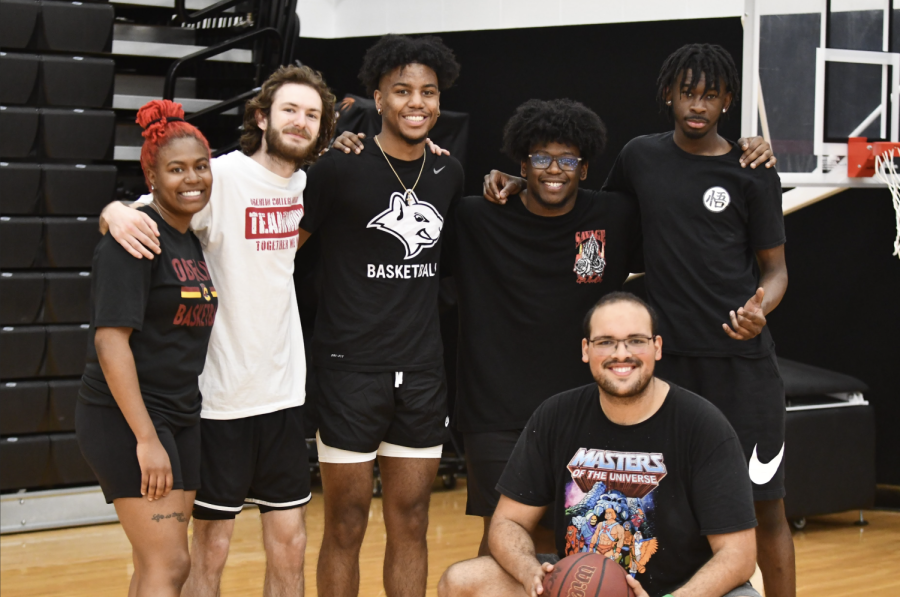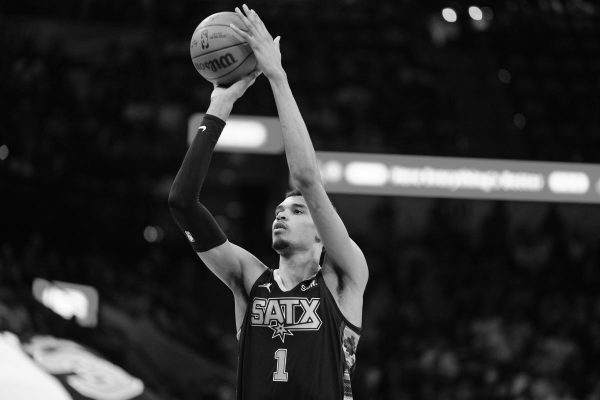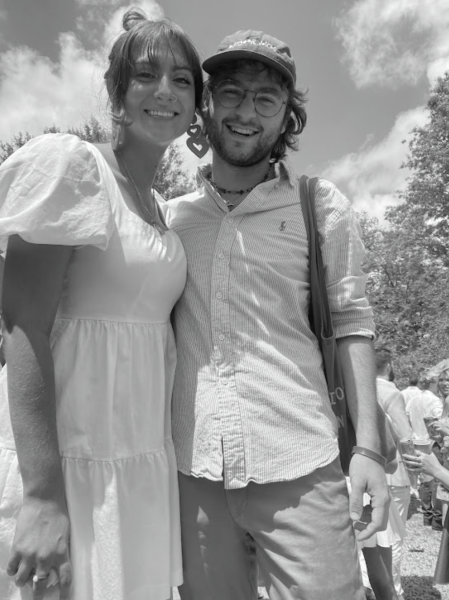BSAG Continues to Support Black Student-Athletes
Photo courtesy of Maggie Balderstone
BSAG has persevered during times of uncertainty since its founding.
Founded in 2019, the Black Student- Athlete Group has played a pivotal role in helping Black athletes find community on campus. According to the BSAG webpage on GoYeo, the mission of the group is to “create a united community for Black student-athletes on Oberlin College’s campus [and] to provide that group of students with a voice and an organization specifically dedicated to promoting them and their success.”
Naeisha McClain, OC ’20, is a founding member of BSAG and a former thrower on the women’s track and field team. McClain said that their experience as a thrower inspired them to get involved as a founding member of BSAG. Because they knew several Black athletes on their team, they recognized the value of having that community and wanted to create something for other Black students who didn’t have the same experience.
“On some teams, there will only be one Black person,” McClain said. “They probably need community, and it would be nice for us as Black student-athletes to be able to support other people who may not have other Black students on the team.”
They also noted that while there were several Black athletes on the track team, they didn’t know Black athletes outside of their sport.
“I … could recognize by face other Black student-athletes that I had seen around, but not by name,” McClain said.
In addition to building community, Kofi Asare, OC ’22, noted that BSAG also plays an important role in shaping Oberlin Athletics.
“I was just back for homecoming this past year,” Asare said. “This was my first time coming back as an alum, and it was great because you could just tell that BSAG sort of had a footprint into the programming.”
Asare entered a leadership role in BSAG during the pandemic, after the class of 2020 had graduated. A major mandate of the newly formed organization was helping maintain connections between Black athletes in that altered landscape.
“I think that when we first took it up, … one of the biggest things that I was concerned about … was sort of just, how do we sustain the community that we’re trying to build over such a difficult and tumultuous time as COVID?” Asare said. “So a lot of that was networking or trying to do smaller events through Zoom or in person for different members of the group.”
Asare was particularly grateful for the opportunity that BSAG afforded him to get to know younger athletes and act as a mentor.
“I think it just really made it more fulfilling to build the relationships, and cultivate the relationships that I had with other Black student-athletes, especially those who are younger than me,” he said.
Hill described the community that BSAG has been able to build in more recent semesters, after McClain and Asare graduated. For instance, the Executive Board of the Student-Athlete Advisory Committee recently introduced the position of a diversity and inclusion officer, who is elected by BSAG. The role of diversity and inclusion officer is currently filled by second-year basketball player Bryana Woodard, who also serves as BSAG’s liaison and social media officer.
“That was something that the board a year or two ago really pushed for,” third-year track and field athlete and BSAG Secretary and Historian Hayden Hill said. Hill noted that she became involved in the group at the suggestion of some of her teammates who were already members.
“A lot of my teammates were on the board of BSAG,” Hill said. “So especially as a first-year, they’re like, … ‘You’re coming to the BSAG meeting?’ I’m like, ‘Yeah, of course.’ So that’s kind of how I got roped into it. But I’m really glad that they did, of course.”
McClain said that the organization’s work is an important way to celebrate the Black athletes who came before BSAG was founded and to honor Oberlin’s progressive legacy. They hopes BSAG will live on, first and foremost, as a space where Black athletes can celebrate each other.
“Oberlin loves to pride itself on [being] the first college to admit someone regardless of their race or regardless of their gender, … but you don’t necessarily get that piece through the Athletics department,” McClain said. “[I hope] that BSAG is able to honor … that legacy as well.”




